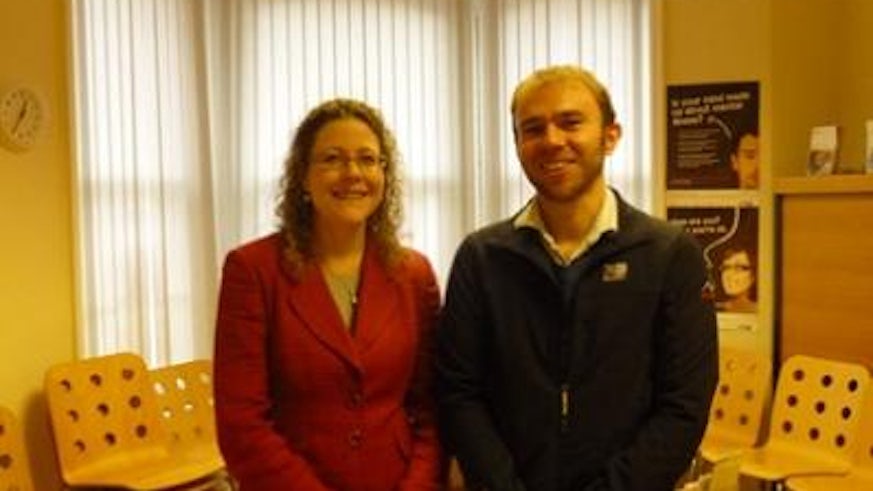From lab bench to green bench
2 December 2013

Dr Adam Glen from the School of Dentistry has been chosen to participate in a unique pairing scheme run by the Royal Society, designed to bridge the divide between parliamentarians and the UK's top scientists.
A visit this week to the House of Commons will see Dr Glen shadowing Ms Jenny Willott MP as part of the 'Week in Westminster' scheme. The scheme is an opportunity for MPs to become better informed about science issues and for scientists to understand how they can influence science policy.
During his visit, Dr Glen will shadow Ms Willott MP and learn about her work and will later attend Prime Minister's Question Time. He will also meet with Professor David MacKay FRS, Chief Scientific Advisor to the Department of Energy and Climate Change (DECC). The visit will provide Dr Glen with a behind-the-scenes insight into how science policy is formed as well as an understanding of the working life of an MP.
So far, over 200 pairs of scientists and MPs have taken part in the scheme since it was launched in 2001. Dr Glen spoke of the opportunities the partner scheme will bring: "Building links between MPs and research scientists will facilitate scientist's understanding of the challenges when forming governmental policy and give MPs a window into the scientific world. This scheme will be of benefit for both parties involved and ultimately facilitate good scientific policy, something which I am very exciting to be part of."
I am delighted to be taking part in the Royal Society pairing scheme again this year. It provides an invaluable opportunity to build links and understanding between MPs and world-leading scientists: important not just to ensure good government policy directly relating to science, but also to promote sensible, evidence-based decision-making more broadly.
We live in a world facing increasing challenges that can only be addressed with a clear understanding of science. From climate change to influenza outbreaks, GM food to nuclear power, our MPs have to make decisions about complex issues that will affect the lives of all those in the UK and, in many cases, more widely throughout the world. This means that MPs and scientists have a responsibility to engage with each other to get the best possible scientific advice into public policy making.We set up the Royal Society's MP Scientist pairing scheme in 2001 to provide the opportunity for MPs and scientists to build long-term relationships with each other and have now organised over two hundred pairings.I know many parliamentarians and scientists who have gained from the scheme, and the shaping of public policy can only improve over time as these relationships continue to grow.